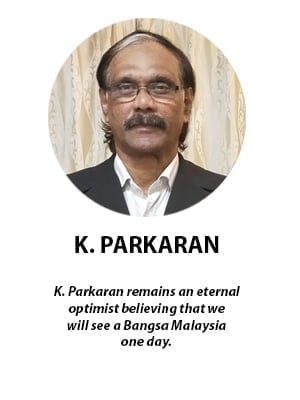
Phạm Văn Đạt and Trần NamNam are two young Vietnamese who are not sitting back and enjoying their weekends off from work.
They have signed up as voluntary guides to take foreigners on tour around Hanoi.
Like all other volunteers who have signed up under the Hanoi Free Tour Guides scheme, they are not paid for their services. The scheme is a non-profit organisation founded and run by a group of students and ex-students.
Phạm and Trần say their main aim is to improve their English besides acquiring knowledge and developing their skills to their full potential.
Tran, 25, a human resources executive in a private firm, says the influx of foreign tourists into Vietnam has opened their eyes to how a good command of the language is vital for the country’s growth and his personal advancement.
“English is vital for the Vietnamese tourist industry. It also offers a wider choice of employment for young people and provides an extensive access to education and vocational training for the poor, disadvantaged and contributes to the community empowerment,” he said in an interview in Hanoi recently.
Networking engineer Pham, he is not sitting on his laurels by working at the prestigious Samsung company. He wants to improve his command of English to help develop his IT skills. He says there is so much to learn from the rest of the world.
Pham says thousands of young Vietnamese are in the free guide service, with the sole aim of improving their command of the language by communicating with English-speaking tourists.
“No one in the country questions our loyalty for placing so much emphasis on English and not our national language,” he said.
Last year, Vietnam was ranked 60th out of 111 countries in terms of English proficiency by a US-based global research company. Malaysia placed 23rd while Singapore took the number two. slot, below the Netherlands.
Vietnam has made English a compulsory school subject for students in Year 3-12, and has required all high schools, colleges and universities to have at least one foreign language and global integration club by 2030.
But Vietnamese families are not waiting for their education system to catch up with the demand for English. They are actively sending their children abroad to pursue their further studies in English.
In Malaysia, however, the rise of a nationalist right wing is seeing attempts to stop the development of the language. In addition, they are challenging the government on allowing vernacular schools to continue existing.
Things were made worse when Ismail Sabri Yaakob was prime minister for 15 months from August 2022. In the name of nationalism, the shortest serving prime minister stopped government officials from using English at meetings and forums abroad unless absolutely necessary.
Needless to say, many blindly followed his myopic orders which led to many discarding English in more ways than one. Some were upset with this but very few openly questioned this regressive policy as they feared being branded as disloyal citizens.
The rot has reached serious levels with poor standard of English in most areas including schools where some teachers even resort to teaching the language in Malay.
The use of the dual language programme in the teaching of mathematics and science in schools has faced much opposition from narrow-minded Malay rights groups who are desperately tying loyalty to the Malay language.
Even schools that declared they were using DLP quietly stopped the programme. Most parents did not dare question this as they feared being labelled as anti-nationalists.
Such moves will only alienate the nation from the global mainstream. Malaysia was an English powerhouse in the 60s and 70s which saw investors coming in droves.
There is no way that the importance of Malay as the national language will be challenged merely by emphasising on the use of more English in our schools and other areas.
In this context, the recent call by Prime Minister Anwar Ibrahim to improve the standard of English among students is timely but as usual, such calls by our leaders just end up as mere pronouncements. They are forgotten after a while as it does not help in the battle for Malay votes during elections.
Nothing short of making English a compulsory language to pass at the Sijil Pelajaran Malaysia examination can see Malaysians raising their proficiency in the dominant language of the business and scientific world.
Vietnam is now already one rung above Malaysia in terms of the gross domestic product according to last year’s list. With a population of 100 million, Vietnam is set to move ahead in all aspects while our leaders are busy exploiting race and religion to win political power.
If the Malay-based political parties and right-wing nationalists continue using language sentiments by opposing a wider use of English, Vietnam is likely to overtake Malaysia in a decade or two.
It’s time these groups realise that one’s loyalty to the country cannot be measured by their mastery of English or Malay. It’s much more than that. - FMT
The views expressed are those of the writer and do not necessarily reflect those of MMKtT.



No comments:
Post a Comment
Note: Only a member of this blog may post a comment.